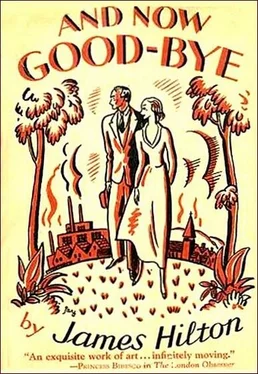They entered the park. He was not quite sure how it would help the journey to South Kensington, but he was still in rather the mood of not caring—after all, it was their last chance, they would never meet and talk again. The prospect of that imminent farewell gave him not so much a feeling of sadness as of something cold and rather blank that he must soon encounter and become used to. He wondered, then, for the first time, if they would correspond. On the whole, he thought better not; there could be no particular point in it, since they would probably never renew the acquaintance. But he did say, with a fervour that rather astonished him: “When you’re in Vienna I don’t suppose you’ll think a great deal about Browdley—no reason, of course, why you should—but I do want you to feel that—in any emergency—you have a friend there. Remember now. At any time—years hence, perhaps—a letter to me will not be wasted. I mean, I shall always want to help you, if it should ever happen that I can. And I daresay I shall always be in Browdley, so you’ll know where to write.”
She said: “It’s very kind of you, and I do thank you. I shall like to feel that. I wish there’d been more time for us to get to know each other. It’s absurd, really—dashing away like this to the opposite ends of the earth. They are rather opposite ends, aren’t they?”
“Absolutely, I should say.”
“And it’s so lovely here to-night. What’s that building over there with all the lights shining on it?”
“I don’t know. I don’t think I really know where I am.”
“Probably I’m dragging you miles out of your way. I keep forgetting how tired you must be. What time’s your train to- morrow?”
“There’s one at ten-thirty I might try for.”
“Mine’s at ten.”
“I suppose we both ought to hurry up and get some sleep.”
“I won’t sleep. I’ll be too excited.”
“About to-morrow?”
“Yes. And to-day.”
He felt the very slightest pressure of her arm in his, and the sensation moved him to a curious whimsical tenderness. “Elizabeth,” he said (he had never called her by her name until then)—“to-day has been rather fine, hasn’t it? Finer, for me, probably, than for you. It seems a hundred years since a solitary grey-haired parson stepped out of a train at St. Pancras Station and carried his bag to a second-rate hotel in Bloomsbury. He was tired and worried, partly because he thought he was very ill, and partly because he had to face an embarrassing interview with a certain young lady of whom he had not had, to be candid, the very best reports.”
He had expected her to be amused, but instead she was silent for a time and then responded, as if with some effort to achieve the same mood: “But you’re not solitary and I don’t think you’re really very grey- haired, either. Besides, even if you were both, the description wouldn’t do, because it suggests someone old and decrepit. You aren’t exactly that, are you, Howat? Is ‘Howat’ what I have to call you? It’s a queer name, isn’t it?”
“It was my father’s. I think it suits a parson, though he wasn’t one—it has just a slight flavour of pretentiousness. I sometimes wish I had another name. No, no, I don’t—I really don’t care at all. I’m not sure that I know what I’m talking about.”
“Perhaps that’s why you called yourself solitary.”
“More likely I was thinking of those old-fashioned boys’ yarns in magazines years ago that used to begin—’One glorious summer’s evening, in the heart of the Canadian Rockies, a solitary horseman might have been seen—’”
“I don’t think you do know what you’re talking about.”
“Of course not. I warn you, I shall talk nothing but nonsense till we say good-bye.”
He felt, indeed, as if a divine yet rather wistful nonsense were closing round him on all sides. The sky was full of stars and there was a new moon, and that shining building, whatever it was, now stood directly ahead, its tall square tower, brilliantly flood-lit, facing them like some fairy goal beyond the trees. The path they were traversing sloped gently down to the suspension bridge over the ornamental water, and there the loveliness of the scene was like a sudden droning in his ears; he stopped, and put his arm round her shoulder as they both gazed down at the water and then across to the spectral buildings in the distance. “There’s the Foreign Office, I think,” she said, and he replied: “Ah yes, yes…” But he was thinking of something else; he was thinking—By God, I believe there is something in me, if it had a chance; I believe what I’m everlastingly seeking for wouldn’t always elude…He felt as if some utmost beauty of the world were calling to him with open arms, while he, for some unfathomable reason, wanted to answer yet could not either speak nor stir.
When, a few moments later, they entered Bird-cage Walk, Big Ben was chiming the quarter, and it was too late, he guessed, to think of finding an omnibus. He asked for the address where she was staying and summoned the first taxi that carne along. He would accompany her, he planned, say good-bye at her destination, and return to his hotel in the same taxi.
As they drove off she said: “Don’t go back straight away. Can’t you spare a minute to come up and see the people I’m staying with? I think you’ll probably like them—they’re interesting.”
“Isn’t it rather late for paying a call?”
“Oh, they don’t care. They very often stay up most of the night talking to people. And they’ve got a photograph of Isaac—I’d rather like you to see it.”
“Yes, ’I’d like to myself. All right, I’ll come, but I really mustn’t stay long. Think of my train to-morrow.”
“And mine. Just now I find them both rather dreadful to think of.”
“Ah, but you’ll love Vienna.”
“Have you been there?”
“No, but I’ve always had a great desire to go. Not that I ever will—it’s too far. The Viennese are supposed to be delightful people.”
“So long as Viennese landladies don’t object to fiddle practice.”
“Perhaps some day I shall pay my five-and-ninepence to hear that fiddle.”
“I should think it very, very improbable.”
“You don’t know.”
“In a way I don’t care. As I told you, I’m not especially optimistic about making money and being successful. I’m just doing everything because I must—because I don’t seem to be able to get what I want any other way. It’s a personal thing. I don’t really care a bit about showing off before other people, though I’d be willing enough to do it for a living. I just want to play the fiddle, that’s all.”
“I think I understand.”
“I really believe you do, and I’m certain nobody else does.”
“Except Isaac?”
“Ah yes, except him.” They both laughed. “You’ll like his face, I think. He’s terribly ugly, so people say, but I never noticed it particularly.”
“He has understanding, anyhow.”
“Yes. He knows how it is that so many things don’t matter when once you’re certain what does matter. At his cinema, for instance, he has to play the most awful music from three every afternoon until eleven at night, but he doesn’t mind. He says very often he doesn’t even hear it.”
“I can believe that. Often I don’t hear my own congregation singing a very bad hymn_ tune half a semitone fiat. I suppose I’ve got used to it.”
“Isn’t that a pity, though, in your case? You’d have hated it at one time, wouldn’t you?”
“Yes, I did hate it, then.”
“And nowadays you don’t bother?”
“I try not to. Somehow, though it perhaps sounds foolish to say so, I’m a bit afraid of bothering. It would be so easy for me to bother too much.”
Читать дальше











